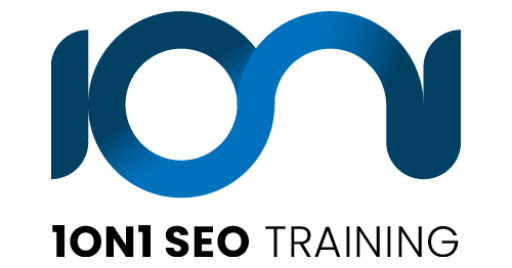Discover the Secrets of SEO With this Comprehensive Training Guide
If you want to learn the secrets of SEO and become an expert? You've come to the right place! In this comprehensive training guide, we will teach you everything you need to know about optimizing your website for search engines.
We'll discuss the basics of SEO and some advanced techniques that can help you improve your ranking and visibility online. Plus, we'll provide helpful tips and resources that will make learning SEO a breeze. So what are you waiting for? Start your training today!
How to Learn SEO?
You're probably here because you want to learn SEO. That's great! Search Engine Optimization is a valuable skill that can help you increase your website's visibility and organic traffic. The good news is that it's not as difficult to learn as you might think. In this guide, I'll share some tips on how to learn Search Engine Optimization.
One of the most important things you can do is to educate yourself on the basics of search engine algorithms. By understanding how search engines work, you'll be in a better position to optimize your website for them. There are plenty of resources online that can help you with this, so there's no excuse not to do your research.
Another crucial aspect of learning SEO is keeping up with the latest trends. Google makes regular changes to its algorithm, and it's important to stay on top of those changes if you want your website to rank well. You can do this by subscribing to industry blogs or following thought leaders on social media. This will ensure that you're always up-to-date on the latest SEO news and changes.
Finally, don't forget to practice what you've learned. The only way to really get good at SEO is to put what you've learned into action. Experiment with different techniques and strategies, and see what works best for your website. Over time, you'll develop your own unique approach to optimizing for search engines, and you'll be able to drive even more traffic to your site.
What is SEO and how does it work?
You're probably reading this because you want to learn SEO. And you've come to the right place! In this article, we'll introduce you to the basics of SEO: what it is, how it works, and why it's essential.
Then we'll dive into some of the key strategies that can help you improve your ranking on search engine results pages (SERPs). By the end of this article, you should have a solid foundation for understanding and improving your own site's SEO. Let's get started!
Search engine optimization (SEO) is the process of making your site more visible and easier to find on search engine results pages. Basically, it's all about helping search engines understand what your site is about so they can match it with relevant queries from users.
There are two main components to SEO: On-Page Optimization (which includes things like choosing the right keywords and setting up your site structure in a way that search engines can easily crawl and index your content) and Off-Page Optimization (like link building and social media engagement).
While there's no magic formula for success when it comes to SEO, there are a few simple things you can do to improve your chances of ranking well in SERPs. For example, make sure your site is mobile-friendly and fast-loading since these are both factors that search engines take into account when determining where to rank websites.
In addition, create high-quality content that provides value to your readers and contains the keywords you're targeting. Finally, focus on building links from other reputable websites in your industry. If you do all of these things, you'll be well on your way to improving your SEO and driving more traffic to your website.
The Basics of SEO - What You Need to Know
Search Engine Optimization, or "SEO" for short, is all about making small tweaks to your website to make it more likely to show up in search engine results.
One of the most important things you can do is choose the right keywords. These are the words and phrases that potential customers are most likely to use when they're searching for businesses like yours. Once you've identified some potential keywords, make sure to include them in key places on your website, like the page titles and headings.
Another important part of SEO is making sure your website is easy for search engines to understand. That means using clear and concise language and avoiding technical jargon. Local SEO is also essential and you must need local SEO training. You should also structure your website in a logical way, with easy-to-follow navigation.
There's a lot more to SEO than just these basics, but if you take care of these basics, you'll already be ahead of most of your competition. And if you want to learn more, there are plenty of resources out there - including SEO training courses - that can help you take your website to the next level.
Advanced SEO Techniques That Can Help You Rank Higher
If you're serious about wanting to rank higher in search engines, then you need to be using advanced SEO techniques. One of the best ways to do this is to get an SEO training course from an expert. A SEO coach can help you learn the ins and outs of seo, and how to use it to your advantage.
They can also help you identify opportunities that you may have missed, and help you to avoid common pitfalls. With SEO coaching, you can take your website to the next level and start seeing real results. If you're ready to take your website to the next level, then Google training SEO is for you.
If you're serious about ranking higher in search results, then you need to start using advanced SEO techniques and learn online SEO training. Coaching can help you learn how to use these techniques effectively, and it's an investment that will pay off in the long run.
Here are just a few of the advanced SEO techniques that can help you rank higher:
•Creating keyword-rich titles and descriptions: This will help your content to be more easily found by search engines.
•Optimizing your website for mobile devices: More and more people are using mobile devices to access the internet, so it's important to make sure your site is mobile-friendly.
•Using social media to promote your content: Search engines are starting to take social media signals into account when ranking websites. So make sure you're promoting your content on all your social media channels.
By using these advanced SEO techniques SEO learn online, you'll be well on your way to ranking higher in search results.
Tips for Optimizing Your Website for Search Engines
If you're looking to get your website ranked higher in search engines, there are a few things you can do to optimize your site. First, make sure you're using the right keywords throughout your content. That means using relevant terms in your titles, descriptions, and body text.
You can find out which keywords are most effective by doing some research or SEO training by Google. Additionally, backlinks are also important for search engine optimization. That means getting other websites to link to yours. The more high-quality links you have, the better your chances of ranking higher in search results.
Finally, make sure your website is mobile-friendly. More and more people are using their phones and tablets to surf the web, so it's important that your site is designed for those devices.
Resources To Help You Learn More About SEO
Search Engine Optimization, or SEO, is a complex and ever-evolving field. If you're looking to learn more about SEO, there are plenty of resources available to help you get started.
One great way to learn more about SEO is to take advantage of Google's free SEO training Google. This course provides a comprehensive overview of SEO, covering topics such as keyword research, on-page optimization, and link building. Best of all, it's completely free!
Another great resource for learning more about SEO is Search Engine Land's Guide to SEO. This guide covers all the basics of SEO, including on-page optimization, link building, and technical SEO. It's a great starting point for anyone looking to learn more about the field.
Finally, Moz also offers a number of helpful resources for learning about SEO. Their beginner's guide to SEO online training is a great place to start, and their blog is full of useful articles on all things SEO. You can also learn from Google SEO training.
The Key Points To Remember About SEO
Now that you've learned the basics of SEO, it's time to put what you've learned into practice. Here are a few key points to remember:
•First and foremost, SEO is all about helping search engines find and index your content.
•In order to do this effectively, you need to focus on both on-page and off-page optimization.
•On-page optimization involves things like choosing the right keywords and using them throughout your content in a way that is both natural and effective.
•Off-page optimization, on the other hand, refers to things like building links and creating social media buzz. Both are essential for getting your content seen by the people who are most likely to be interested in it.
Finally, don't forget that SEO is an ongoing process. The landscape is constantly changing, so it's important to stay up-to-date on the latest trends and best practices. By following these simple tips, you can ensure that your content is always visible to the people who are most likely to want to see it. Thanks for reading!
You've now completed your SEO online training at 1on1seotraining.com! Congratulations on taking the first steps to learn SEO optimization and improve your website's ranking in search engines. Through this course, you've learned about the different factors that go into SEO, including keyword research, on-page optimization, and link building. You've also had a chance to put what you've learned into practice by completing exercises and projects.
Now that you've completed the course, you should have a solid foundation of knowledge to help you start optimizing your own website. Remember to keep practicing and learning, as SEO is always evolving.




